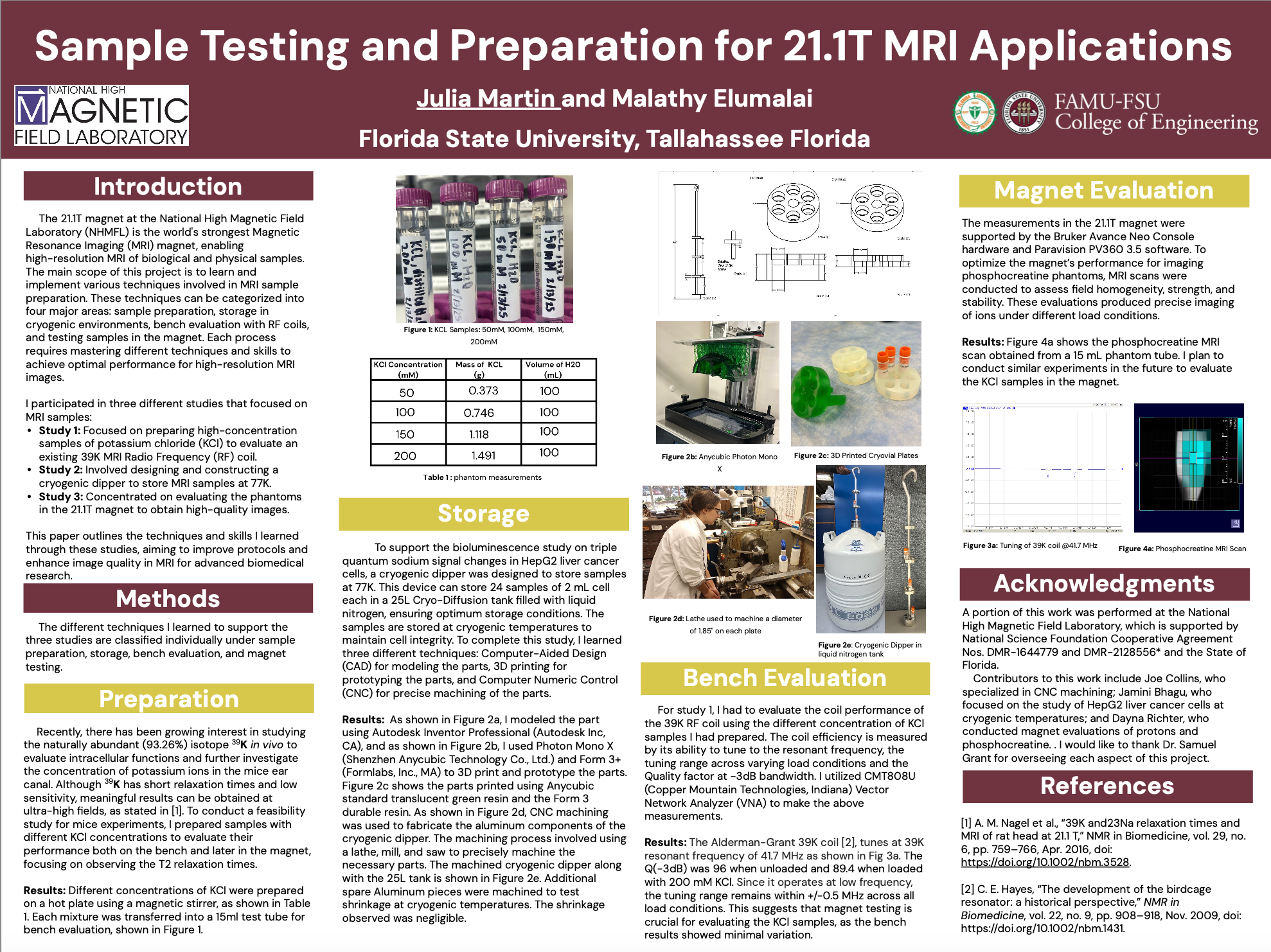Research Symposium
25th annual Undergraduate Research Symposium, April 1, 2025
Julia Martin Poster Session 1: 9:30 am - 10:30 am/ Poster #118
BIO
My name is Julia Martin. I am a junior from Auburn, New Hampshire, studying Biomedical Engineering at the FAMU-FSU College of Engineering. Currently, I work as an undergraduate research assistant in the NMR department at the National High Magnetic Field Laboratory, where I focus on RF coil evaluation and MRI sample preparation. My academic interests include computer-aided design (CAD), bioinstrumentation, and image processing. I am excited to further explore these areas through the NHMFL REU program this summer, where I will continue working on RF coil optimization for high-field MRI applications.
Sample Testing and Preparation for 21.1T MRI Applications
Authors: Julia Martin, Malathy ElumalaiStudent Major: Biomedical Engineering
Mentor: Malathy Elumalai
Mentor's Department: CIMAR, NMR Mentor's College: National High Magnetic Field Laboratory Co-Presenters:
Abstract
The 21.1T magnet at the National High Magnetic Field Laboratory (NHMFL) is the world’s most powerful Magnetic Resonance Imaging (MRI) system, enabling high-resolution imaging of biological and physical samples. This project focused on learning techniques in MRI sample preparation, including phantom formulation, cryogenic storage, bench evaluation with radio frequency (RF) coils, and testing in the 21.1T magnet. Three studies were conducted to enhance MRI protocols: preparation of potassium chloride (KCl) samples to evaluate a 39K MRI RF coil, development of a cryogenic dipper for long-term sample storage at 77K, and MRI evaluation of phantoms in the magnet to optimize imaging quality. Experimental results demonstrated the feasibility of 39K imaging at ultra-high fields and highlighted the importance of precise sample handling and cryogenic techniques in MRI research. These findings aims to improve imaging protocols and enhance the use of high-field MRI for biomedical applications.
Keywords: RF Coil, MRI, Biomedical Engineering

